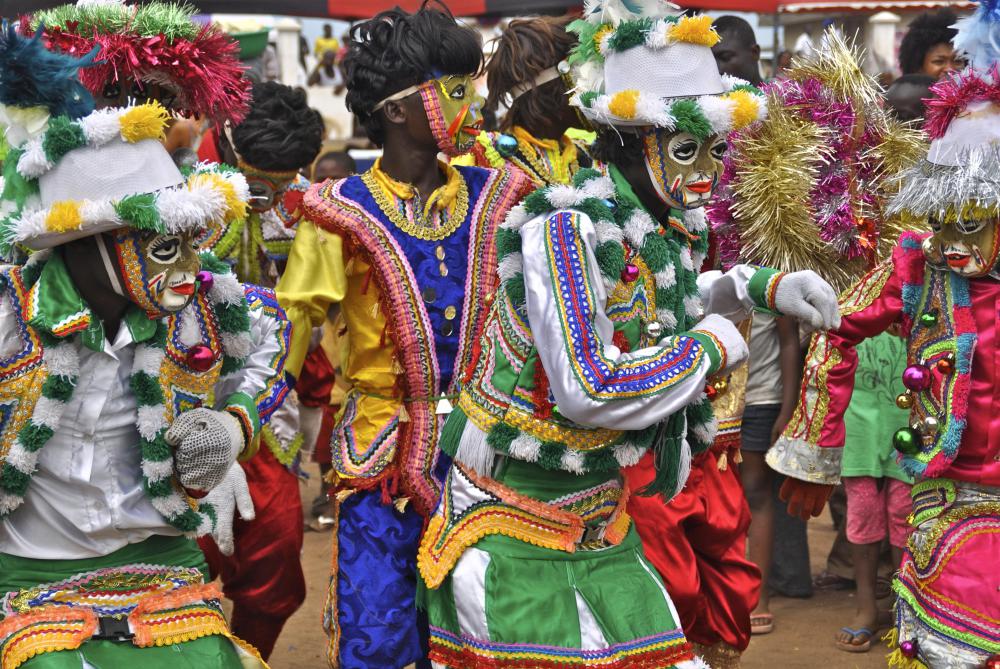At WiseGEEK, we're committed to delivering accurate, trustworthy information. Our expert-authored content is rigorously fact-checked and sourced from credible authorities. Discover how we uphold the highest standards in providing you with reliable knowledge.
What is a Jazz Funeral?
While funerals with music have been performed for centuries, there is a tradition unique to New Orleans, Louisiana known as a jazz funeral. A jazz funeral combines elements of African, French and early American funeral ceremonies into a procession which features a brass band, two lines of mourners, and a blend of solemn hymns, dirges and upbeat jazz or Dixieland music. Jazz funerals are not as common as they once were, but they can be arranged for prominent local musicians or members of social organizations known as crewes.
The traditional jazz funeral is believed to have originated with the African-American population of New Orleans sometime around the turn of the 20th century. African burial ceremonies often featured musicians who honored the deceased through their craft. These traditions inspired African-American residents of New Orleans to create a funeral ceremony which captured both the sadness and joys of the deceased person's life, thus releasing his or her soul to the angels.

During a traditional jazz funeral, the casket may be viewed in a private home or a funeral home for several days. On the day of the burial, a local brass band is commissioned to lead the procession to the cemetery. Family members and close friends follow the band as it performs solemn hymns and dirges in a slow, deliberate tempo. One common hymn performed during this phase of a jazz funeral is "Just A Closer Walk With Thee." The casket follows behind the first line of mourners, allowing bystanders along the route to pay their last respects.

Following a graveside religious service, the brass band reverently leaves the site and, once out of earshot, leads what is known as the "second line." This second line often consists of colorfully dressed celebrants who strut and dance as the brass band performs raucous versions of New Orleans jazz standards such as "When The Saints Go Marching In" or "Hold That Tiger."

Traditional jazz funerals largely fell out of favor during the 1970s, as older brass bands disbanded and newer bands embraced a more modern repertoire. Following the devastating Hurricane Katrina in 2005, however, interest in jazz funerals and other New Orleans traditions has increased significantly. While the basic elements of the ceremony can be duplicated elsewhere, an authentic New Orleans jazz funeral should be an arrangement between a sponsoring crewe or other organization, the city of New Orleans, and a commissioned brass band.
Many traditional jazz funerals have been held for departed New Orleans musicians and beloved members of established Mardi Gras crewes. The musical nature of the procession is said to be a fitting way to send a musician's soul up to Heaven, and it is not unusual to find other musicians joining the brass band during the second line celebrations.
AS FEATURED ON:
AS FEATURED ON:













Discussion Comments
I think I would like to have a jazz funeral when I finally pass away. It just seems like a classy way to handle the emotions of a funeral. I've never seen a jazz funeral procession anywhere outside of New Orleans, though. I wonder if other cities allow mourners to walk through the streets like that.
I can't remember which Bond movie it is, but one of them shows a jazz funeral procession in New Orleans. I remember watching that movie and wondering why all of these people were dancing around while a Dixieland band played upbeat songs. It seemed disrespectful to me at the time, since funerals were supposed to be serious occasions.
Now I realize it was a jazz funeral, and they do start out with slow jazz funeral songs like "Take My Hand, Precious Lord". The second line music doesn't start right behind the first procession, either. There is a little time before people switch from mournful to happy.
Post your comments